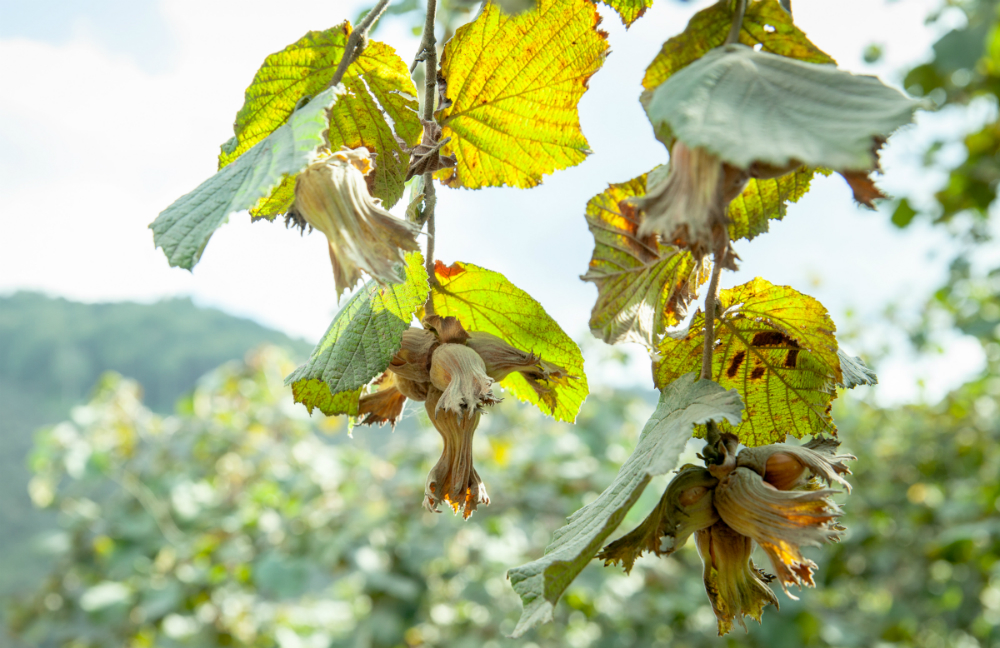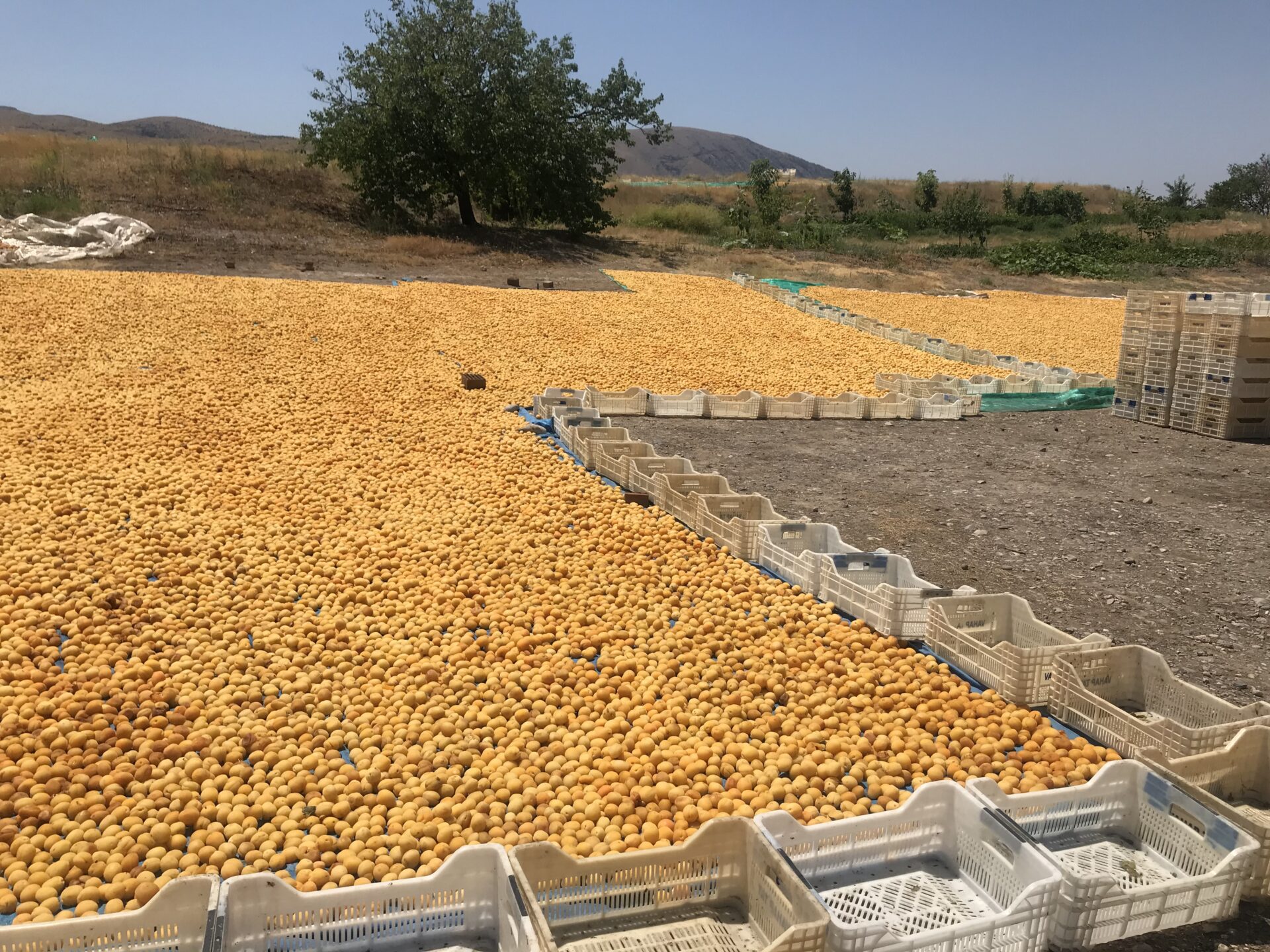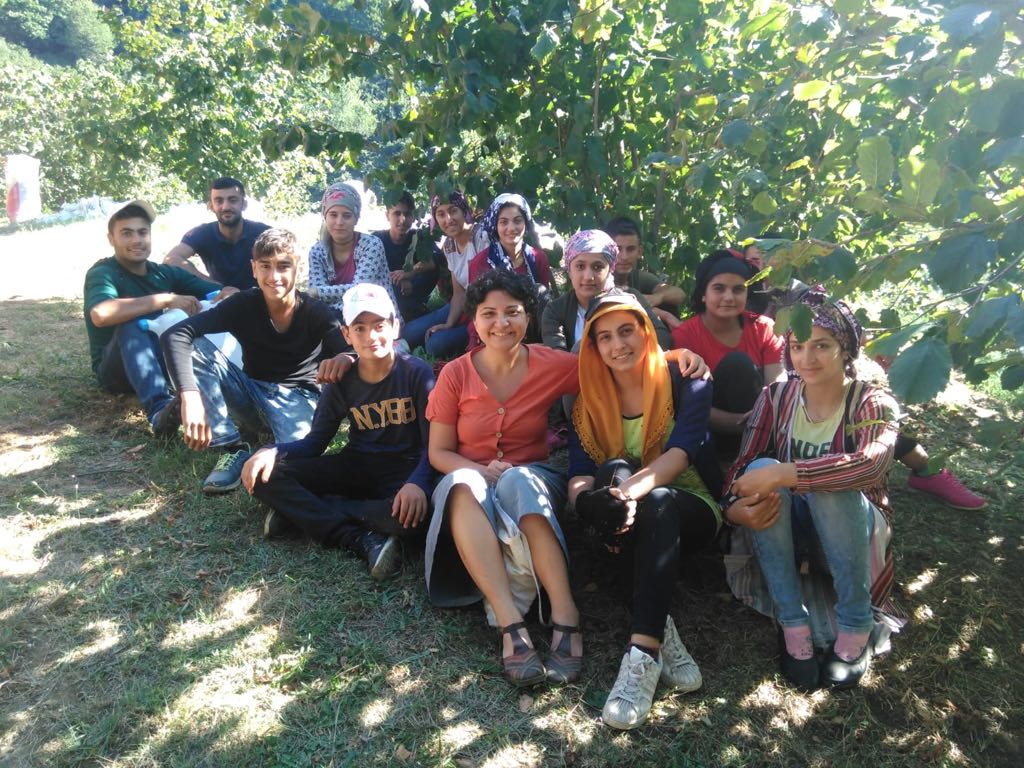
Projects(8)
-
PROJECT
Harvesting the Future – Access to Remedy
![]()
-
PROJECT
Women’s Economic Empowerment in Cocoa Activities in Côte d’Ivoire
![]()
-
PROJECT
Harvesting the Future
![]()
-
PROJECT
Are Companies' Programs Impacting Change in the Lives of Hazelnut Workers?
![]()
-
PROJECT
Fair Labor Agriculture Alliance
![]()
-
PROJECT
Practitioners' Guide to Applying USDA Guidelines for Eliminating Child and Forced Labor in Agricultural Supply Chains
![]()
-
PROJECT
Piloting Strategies to Reduce Child Labor in the Hazelnut Harvest
![]()
-
PROJECT
Gender Dialogue Project in the Ivory Coast
![]()
Articles(7)
-
Fair Compensation+1
Members share best practices, social compliance resources at annual FLA spring board meeting
April 3, 2024 View Members share best practices, social compliance resources at annual FLA spring board meeting -
FLA Board and members conclude October meeting, bid farewell to CEO
October 26, 2023 View FLA Board and members conclude October meeting, bid farewell to CEO -
Child Labor+3
FLA report highlights effective interventions that promote decent work
June 13, 2019 View FLA report highlights effective interventions that promote decent work -
Child Labor
Fair Labor Association awarded $4.87 million to address child labor in Turkey
December 2, 2015 View Fair Labor Association awarded $4.87 million to address child labor in Turkey -
Nestlé gives progress update, consults stakeholders on Ivory Coast action plan
January 17, 2013 View Nestlé gives progress update, consults stakeholders on Ivory Coast action plan -
Child Labor
FLA highlights underlying challenges of child labor after extensive investigation of Nestlé’s cocoa supply chain
June 29, 2012 View FLA highlights underlying challenges of child labor after extensive investigation of Nestlé’s cocoa supply chain -
Nestlé joins Fair Labor Association
March 1, 2012 View Nestlé joins Fair Labor Association
Reports(21)
-
Agriculture Assessment
Independent External Monitoring of Nestlé's Cocoa Supply Chain in Cameroon, 2021
-
Annual Public Reports
2022 Annual Public Report
-
Agriculture Assessment
Mapping Working Conditions and Child Labor in the Nestlé Cocoa Supply Chain in Cameroon
-
Agriculture Assessment
2017 Executive Summary, Nestlé, Balsu & Olam Shared Hazelnut Supply Chain, Turkey
-
Agriculture Assessment
2016 Executive Summary, Nestlé Cocoa Supply Chain, Côte d’Ivoire
-
Agriculture Assessment
2016 Executive Summary, Nestlé, Balsu & Olam Hazelnut Supply Chain, Turkey
-
Agriculture Assessment
2016 Independent External Monitoring Reports, Nestle, Balsu & Olam Shared Hazelnut Supply Chain
-
Agriculture Assessment
2015 Executive Summary, Nestlé Cocoa Supply Chain, Côte d’Ivoire
-
Agriculture Assessment
Assessment Report, Nestlé Standard Cocoa Supply Chain, Côte d’Ivoire
-
Agriculture Assessment
2015 Executive Summary, Nestlé, Balsu & Olam Hazelnut Supply Chain, Turkey
-
Agriculture Assessment
2015 Independent External Monitoring Reports, Nestlé Cocoa Supply Chain, Côte d’Ivoire
-
Agriculture Assessment
2015 Independent External Monitoring Reports, Nestle, Balsu & Olam Shared Hazelnut Supply Chain
-
Agriculture Assessment
2014 Executive Summary, Nestlé Cocoa Supply Chain, Ivory Coast
-
Third Party Complaint
Karacabey Factory, Turkey
-
Agriculture Assessment
2014 Executive Summary, Nestlé, Balsu & Olam Hazelnut Supply Chain, Turkey
-
Agriculture Assessment
2013 Executive Summary, Nestlé Cocoa Supply Chain, Ivory Coast
-
Agriculture Assessment
2013 Executive Summary, Nestlé Hazelnut Supply Chain, Turkey
-
Agriculture Assessment
2012 Stakeholder Consultation, Addressing Child Labor in Nestlé’s Cocoa Supply Chain in Côte d’Ivoire
-
Agriculture Assessment
2011 Assessment, Nestlé Cocoa Supply Chain, Ivory Coast
-
Agriculture Assessment
Hazelnut Supply Chain and Harvest Assessment, Turkey
-
Agriculture Assessment
2016 Independent External Monitoring Reports, Nestlé Cocoa Supply Chain, Côte d’Ivoire





